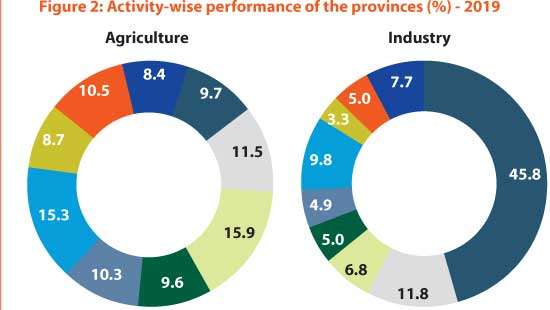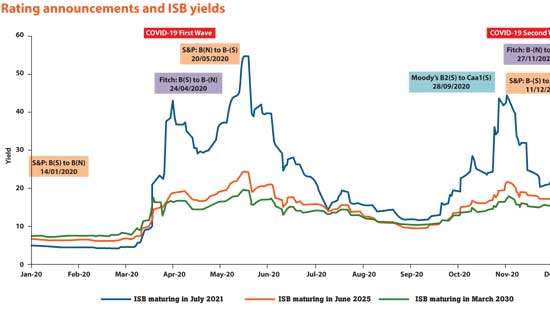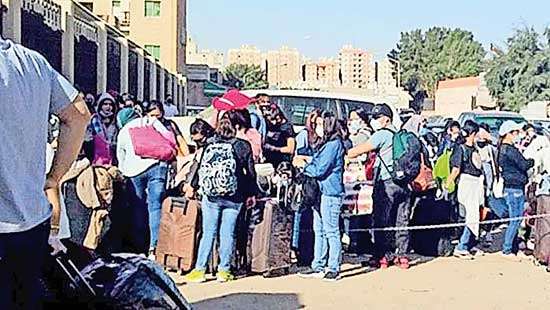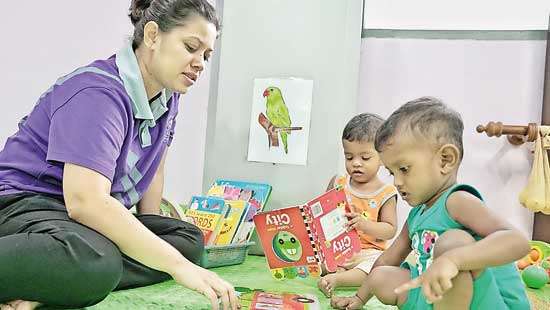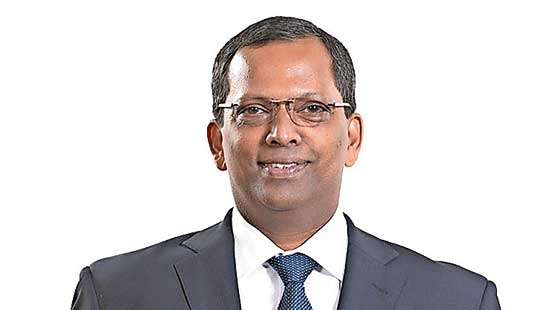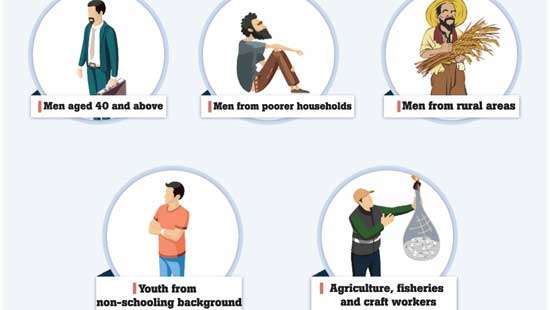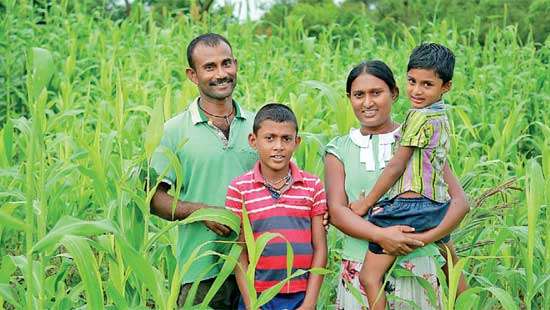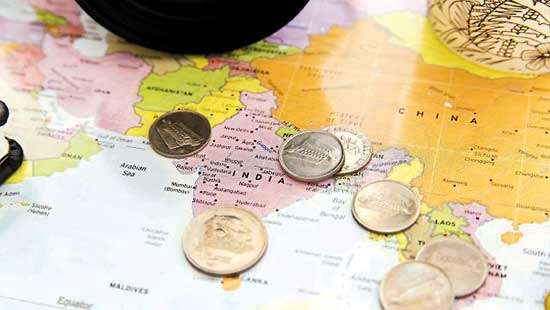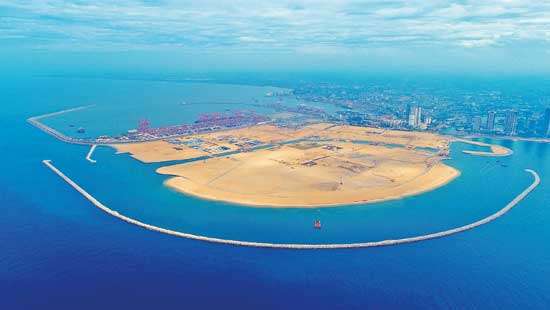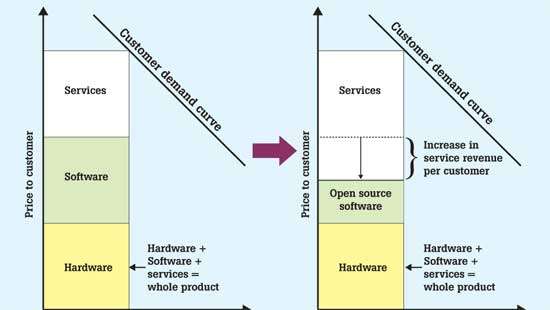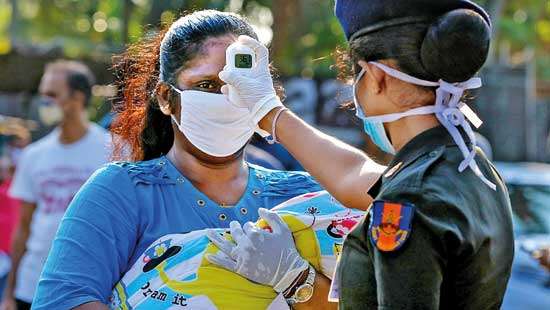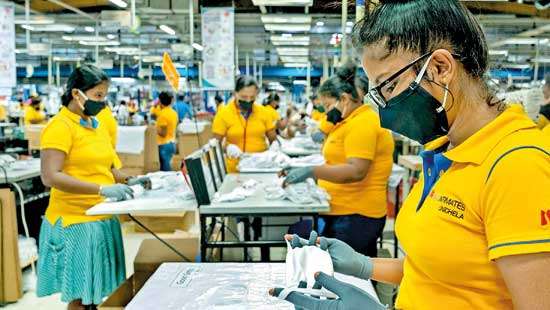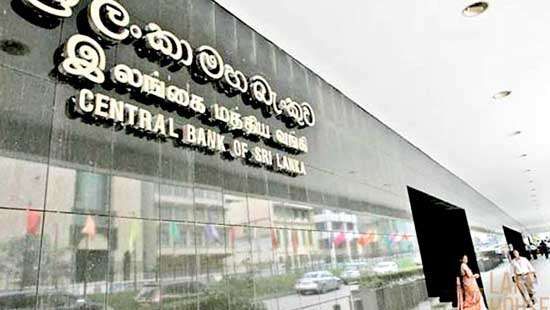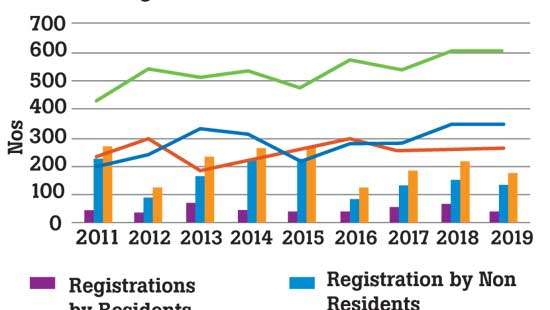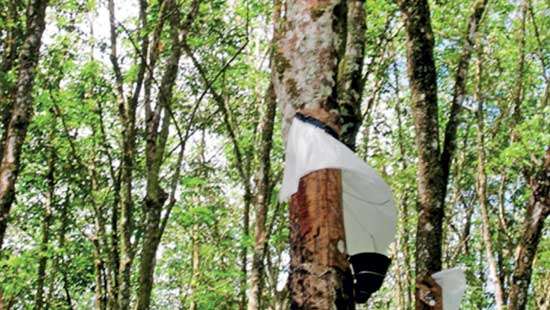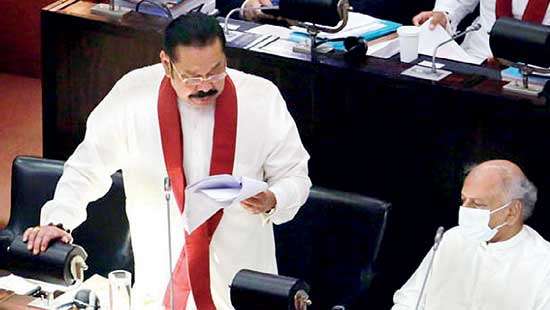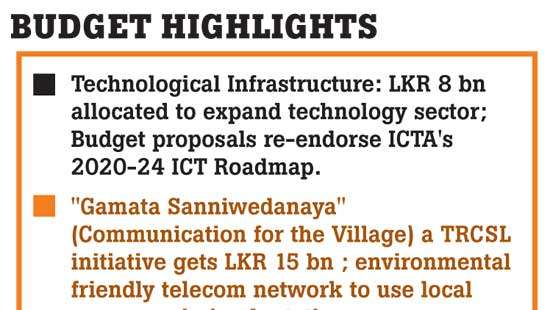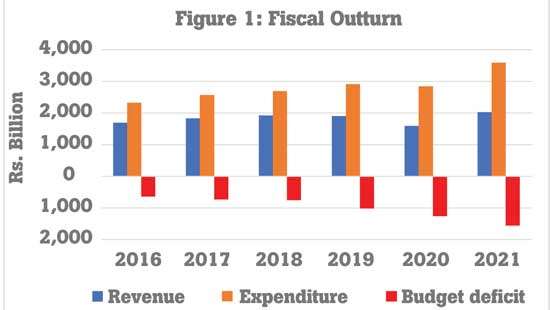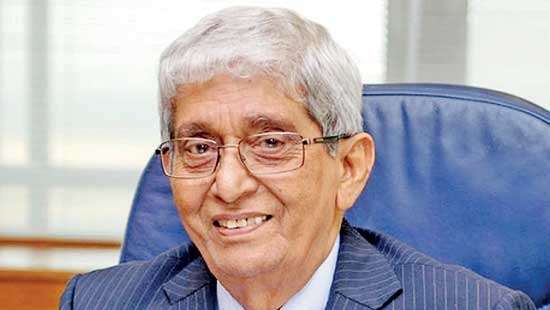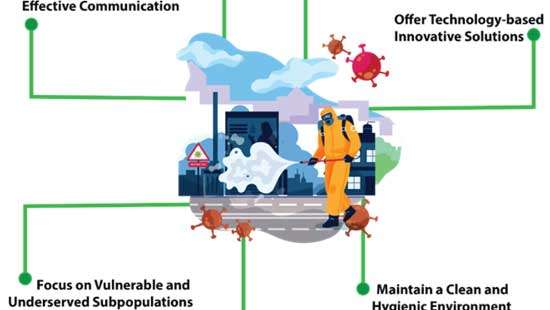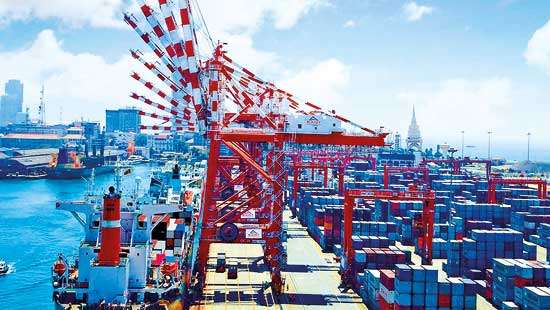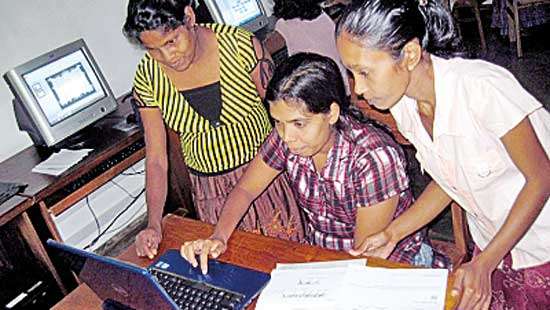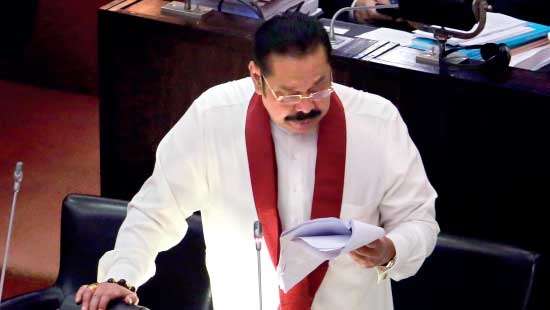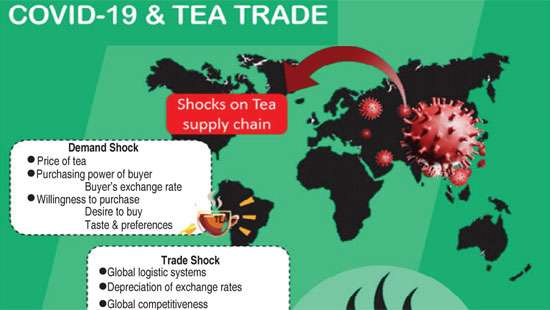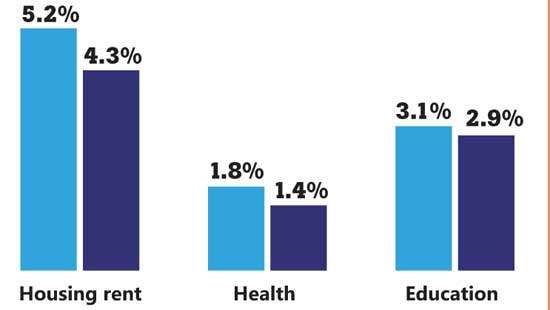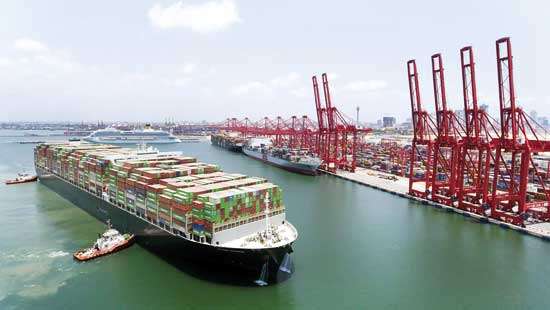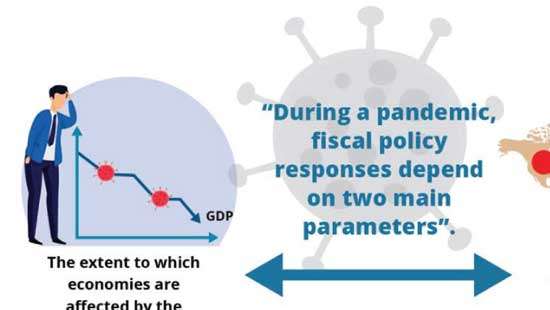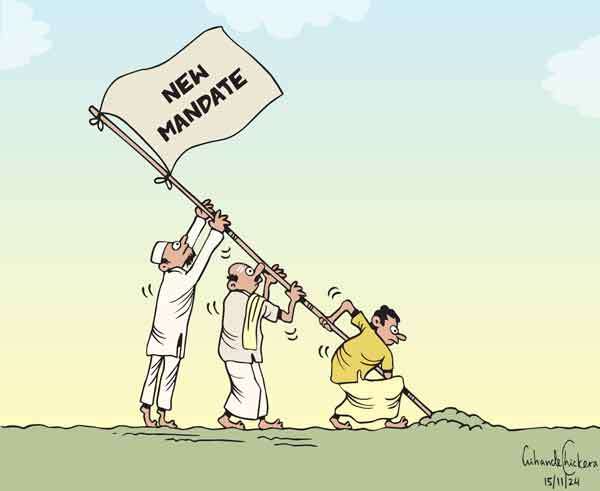Features
CB releases provincial gross domestic product estimates for 2019
21 Dec 2020
 0
0
The Western province secured the largest share (39.1 per cent) of the country’s nominal gross domestic product (GDP). However, due to improved contribution from the other provinces, the share declined by 0.5 percent from 2018. The Central (11.5 percent) and North Western (10.7 per cent) provinces were ranked at the second and third positions, respectively.
Rating agencies and doomsayers: Exaggerating obvious and wishing for a downfall?
21 Dec 2020
 0
0
The global economy is going through its toughest episode in its recent history. The COVID-19 pandemic has caused a sharp global economic downturn and disrupted societies in an unprecedented manner. Governments across the world have taken decisive steps to address the economic and social consequences of the pandemic, with differing degrees of success.
Growing need for childcare support in Sri Lanka
18 Dec 2020
 0
0
As an early childhood education specialist and as a mother of two children, I know how difficult the COVID-19 pandemic has been for parents who are juggling work and family obligations. The lack of affordable and reliable childcare options has left many parents scrambling to find makeshift solutions and has brought the issue of childcare sharply into focus.
Sri Lanka’s tobacco smoking challenge: Going the last mile
11 Dec 2020
 0
0
“I stopped smoking after being diagnosed with cancer. I was shocked when I heard about it. Doctors say it is because of tobacco smoking. I know it is late now to quit but I decided to do so because I do not want my condition to worsen. It is heart-breaking to go to the cancer hospital in Maharagama and see what people are going through.”
Carbon neutrality by 2050: World’s most urgent mission
11 Dec 2020
 0
0
As the world marks the fifth anniversary of the adoption of the landmark Paris Agreement on climate change, a promising movement for carbon neutrality is taking shape. By next month, countries representing more than 65 percent of harmful greenhouse gasses and more than 70 percent of the world economy will have committed to achieve net zero emissions by the middle of the century.
Taxes on essential products: Bringing the debate back to where it matters
11 Dec 2020
 0
0
Sri Lanka’s exorbitant taxes on sanitary napkins had the media spotlight over the last few weeks – this is not a new issue. In 2018, the total tariffs on sanitary napkins was over 101.2 percent. Since then we have seen some progress, with the tax being reduced from 101.2 percent to its current rate of 52 percent, a result of several tax revisions.
RCEP: Sri Lanka’s latest Asia-centric conundrum
08 Dec 2020
 0
0
The formation of the world’s largest regional trade bloc – the Regional Comprehensive Economic Partnership (RCEP) in November 2020 – on Sri Lanka’s doorstep raises fresh questions about how the country will navigate its most recent Asia-centric re-positioning.
Could Port City-related FDI bailout Sri Lanka?
07 Dec 2020
 1
1
A recent press release by the Finance Ministry in response to the downgrade of Sri Lanka’s sovereign rating by Fitch Ratings expresses the government confidence in overcoming Sri Lanka’s short-term economic challenges. In the same statement, the Finance Ministry emphasises that foreign direct investment (FDI) is expected to play a key role in overcoming the country’s current economic distress.
COVID-19 pandemic, women and women in workforce
04 Dec 2020
 0
0
The current global outbreak of COVID-19 that has already disrupted the lives of the people would further entrench the existing gender inequalities in many ways. In most contexts, women and girls are disproportionately impacted due to their relatively disadvantaged situation, distinct social obligations and responsibilities.
JAAF continues to guide apparel sector in trying times
04 Dec 2020
 0
0
Consequent to the second wave of COVID-19 infections, apparel companies have been working to the guidelines issued by the Environment, Occupational Health and Food Safety Directorate under the Health Ministry, which set out in detail the steps to be taken to ensure that factories are made as safe as possible.
Central Bank’s easy money policy less helpful for economic revival
02 Dec 2020
 1
1
The Central Bank, at its recent monthly monetary review meeting, decided to continue its accommodative monetary policy stance to boost economic growth while recognising the absence of demand-driven inflationary pressures. Accordingly, the Central Bank will maintain its Standing Deposit Facility Rate (SDFR) and Standing Lending Facility Rate (SLFR) at their current levels of 4.50 percent and 5.50 percent, respectively.
COVID-19 crisis and innovation: Why intellectual property rights matter
02 Dec 2020
 0
0
Way back in 1945, renowned author Kumarathunga Munidasa wrote in ‘Virith Vekiya’: “A nation that does not invent and produce new things will not thrive.” The visionary Munidasa clearly understood the importance of innovation for economic and social progress.
Do not kill the goose: There is no such thing called ‘golden eggs’
01 Dec 2020
 0
0
At last, the rubber price is improving; the event we have long waited for but we do not know for how long it will last. The growers had to undergo a long frustrating period with rubber, as far as the price is concerned and therefore, it is not unreasonable or wrong to get the full benefit of the prevailing high price.
A normal budget for abnormal times
27 Nov 2020
 0
0
The 2021 Budget Speech delivered recently in Parliament by Sri Lanka’s Prime Minister cum Finance Minister outlines a development strategy, couched in the rubric ‘Vistas of Prosperity and Splendour’, for elevating a COVID-19 shattered economy. In many respects, the speech is heroic as it attempts to chart a course for making Sri Lanka a self-reliant, prosperous nation in the midst of a global pandemic.
Budget 2021 likely to worsen macroeconomic instability amidst COVID-19 pandemic
25 Nov 2020
 0
0
Budget Speech 2021 was presented at a time when the country is being severely hit by the COVID-19 pandemic. GDP growth is projected to be down to negative 2 percent this year. Despite this economic setback, the government envisages to maintain an inclusive GDP growth rate of 6 percent per annum over the medium-term while containing inflation to around 5 percent, according to its macroeconomic programme, ‘Vistas of Prosperity and Splendour’.
Urban solutions: Building pandemic resilience in Sri Lanka’s cities
20 Nov 2020
 0
0
Sri Lanka is experiencing a second wave of the COVID-19 pandemic and cities and urban centres have become the hotspots of vulnerability. With their relatively favourable economic conditions and extensive transport networks, cities attract migrants from rural areas, frequently resulting in overcrowding and greater vulnerability to external shocks such as COVID-19.
Highlights of Budget 2021 and impact on export sector
20 Nov 2020
 0
0
The Export Development Board (EDB) is pleased to see an export-focused budget, which will support strong export growth, led by investment, value addition and maximising our Sri Lankan natural resources. This is a pivotal change in Sri Lanka’s growth strategy, which will be led by the exporters.
Tobacco economics: How reduced consumption benefits household and national economy
09 Nov 2020
 0
0
On average, a tobacco-user household spends nearly Rs.2000 per month on tobacco, constituting 4 percent of the household budget. Spending on tobacco can drive out other critical expenditures, including basic needs. This crowd-out effect would be greatest for poor families, affecting not only the smoker but the rest of the family as well. Smoking, therefore, is not only unhealthy but costly.
New international economic order under COVID-19 – Whither Sri Lanka
09 Nov 2020
 0
0
This concept termed ‘new international economic order’ is not a new one – it’s a 50-year-old concept to promote the interests of developing countries vis-à-vis developed countries in early 70s. This is relevant now because the international economic order, like an organism, continues to evolve especially in the context of the current pandemic situation.
What can we learn from the int’l context?
05 Nov 2020
 0
0
Amidst the severe disruptions triggered by the COVID-19 pandemic, it is important for economies to formulate and implement effective policies to mitigate the negative impacts induced by the crisis. As noted by the International Monetary Fund (IMF), the pandemic has intensified the need for fiscal policy action at an unprecedented level.

Fonterra to proceed with sale process for Consumer businesses
05 Nov 2020
 0
0

BOI signs US$ 12.16mn deal with Celogen Lanka
05 Nov 2020
 0
0

Nissan to lay off thousands of workers as sales drop
05 Nov 2020
 0
0

EU Ambassador meets new BOI Chief to discuss economic ties
05 Nov 2020
 0
0

SLCERT warns WhatsApp users against sharing OTPs to prevent hacking
05 Nov 2020
 0
0

NPP heading for clear parliamentary majority
05 Nov 2020
 0
0


